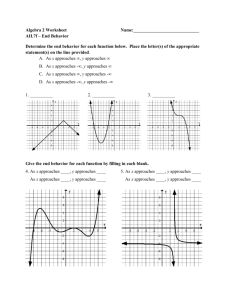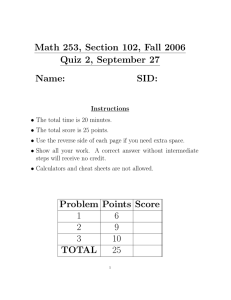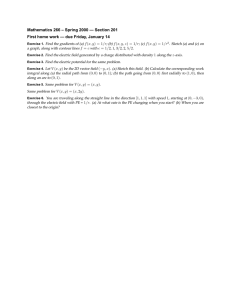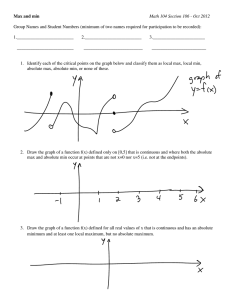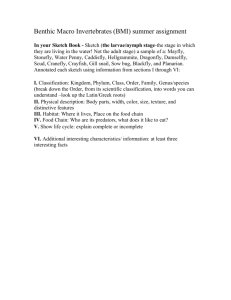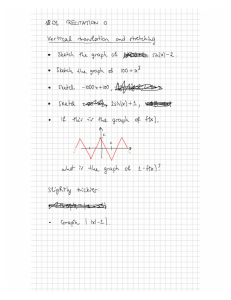Idea Log?
advertisement
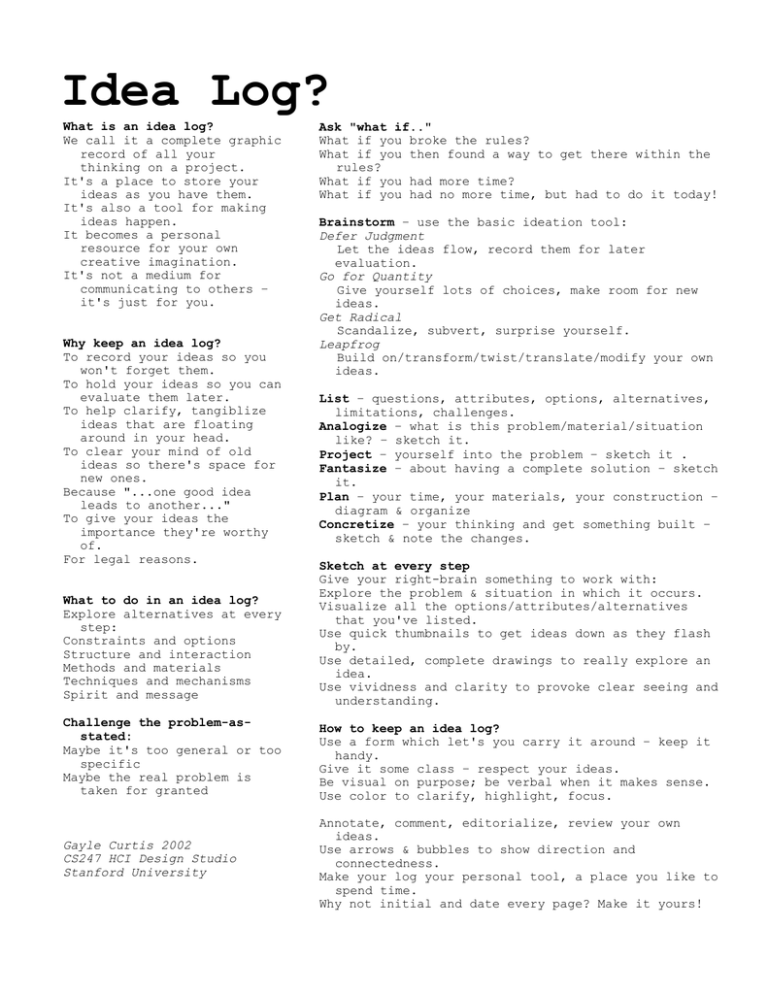
Idea Log? What is an idea log? We call it a complete graphic record of all your thinking on a project. It's a place to store your ideas as you have them. It's also a tool for making ideas happen. It becomes a personal resource for your own creative imagination. It's not a medium for communicating to others – it's just for you. Why keep an idea log? To record your ideas so you won't forget them. To hold your ideas so you can evaluate them later. To help clarify, tangiblize ideas that are floating around in your head. To clear your mind of old ideas so there's space for new ones. Because "...one good idea leads to another..." To give your ideas the importance they're worthy of. For legal reasons. Ask "what if.." What if you broke the rules? What if you then found a way to get there within the rules? What if you had more time? What if you had no more time, but had to do it today! Brainstorm – use the basic ideation tool: Defer Judgment Let the ideas flow, record them for later evaluation. Go for Quantity Give yourself lots of choices, make room for new ideas. Get Radical Scandalize, subvert, surprise yourself. Leapfrog Build on/transform/twist/translate/modify your own ideas. List – questions, attributes, options, alternatives, limitations, challenges. Analogize – what is this problem/material/situation like? – sketch it. Project – yourself into the problem – sketch it . Fantasize – about having a complete solution – sketch it. Plan – your time, your materials, your construction – diagram & organize Concretize – your thinking and get something built – sketch & note the changes. What to do in an idea log? Explore alternatives at every step: Constraints and options Structure and interaction Methods and materials Techniques and mechanisms Spirit and message Sketch at every step Give your right-brain something to work with: Explore the problem & situation in which it occurs. Visualize all the options/attributes/alternatives that you've listed. Use quick thumbnails to get ideas down as they flash by. Use detailed, complete drawings to really explore an idea. Use vividness and clarity to provoke clear seeing and understanding. Challenge the problem-asstated: Maybe it's too general or too specific Maybe the real problem is taken for granted How to keep an idea log? Use a form which let's you carry it around – keep it handy. Give it some class – respect your ideas. Be visual on purpose; be verbal when it makes sense. Use color to clarify, highlight, focus. Gayle Curtis 2002 CS247 HCI Design Studio Stanford University Annotate, comment, editorialize, review your own ideas. Use arrows & bubbles to show direction and connectedness. Make your log your personal tool, a place you like to spend time. Why not initial and date every page? Make it yours!

